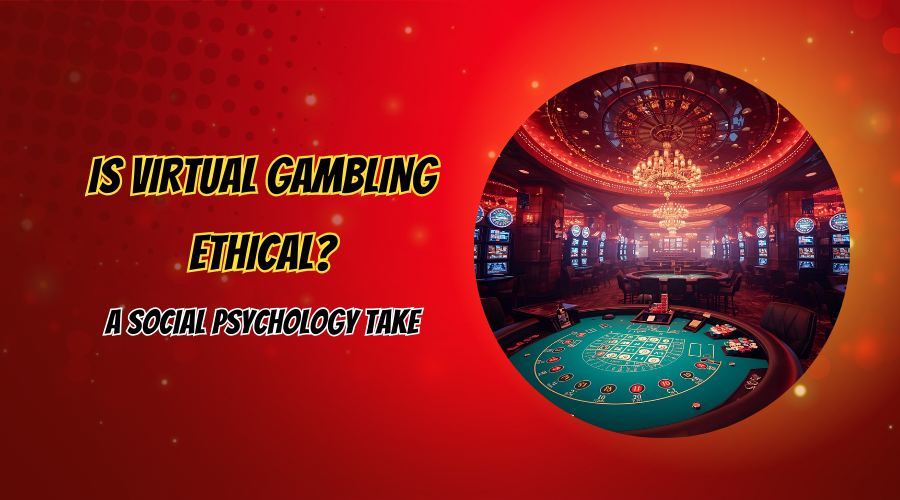Is Virtual Gambling Ethical? A Social Psychology Take

The passion for virtual gambling has long gone beyond the scope of ordinary entertainment. This is especially true for formats like social gaming casinos, where no one seems to risk money, but the emotions are real, and the involvement is as high as it can be. And here, everything is not as simple as it seems.
An illusion without money, but with spending
The mechanics of social gaming casino games are simple: you spin slots or play poker, but you use virtual chips instead of real money. In itself, there is nothing criminal. No bet—no win. All for fun. But the chips quickly run out. And then a store appears where you can buy "a little more." It seems like nothing serious, but now a person is already spending real money—without realizing that he does not receive any value except for the process.
The difference between this and a regular casino is purely legal. And emotional behavior is essentially the same. And here the questions begin.

$250 in Free Bets

150% Bonus - Reduced Juice

Reduced Juice Lines (-105)
Where is the line drawn
Most of the ethical debate in this topic is not about the fact of spending, but about how games provoke this spending. People do not pay because they want to. They are gently but methodically pushed to do so. This works through mechanics that in psychology are called “reinforcement loops”.
Here's what it looks like:
Micro-wins—the player is first given a quick feeling of success. He wins on the first spins, accumulates chips, and opens levels. There is a feeling that the game is “fair.”
Loss of balance—as soon as a person is involved, the balance begins to melt. There are fewer bonuses, and wins are less frequent. Frustration sets in.
Payment as an exit – “salvation” appears—the purchase of virtual coins. All this is packaged in animations, promotions, and timers. Urgency is created, even mild stress.
Social comparison—other players share their successes in the chat or leaderboard nearby. The game hints: if you want to be in their place, pay.
This process seems harmless, but it works on emotions, not logic. A person is not deceived directly, but conditions are created where it is increasingly difficult for him to make a conscious choice.
This approach can hardly be called transparent. And this is exactly what social casinos have a lot of problems with. Especially when minors or people with an already formed addiction to gambling play in them.
Transparency is not just a word
Ethics in virtual gambling is not only about addiction. Another important thing is honesty. A simple example: you buy a "chest with a 30% chance of a rare item," but nowhere is it written that this chance is calculated within 100 other mechanics. The result is 30% only on paper. But in reality, you spend more than you wanted and are left with nothing.
Some social gaming casinos have begun to indicate real odds; others offer purchase limits or warnings. But there are few such examples. And until this becomes the norm, there is no point in talking about true ethics.
People want to play and they will
Games themselves are not evil. Even gambling ones. But if the system is built in such a way as to initially lure you into a cycle of dependencies and then slip in decisions that lead to spending—this is no longer just entertainment. This is behavior management. Not the most honest.
The user does not need a complete guide to probability theory. But he has the right to know what he is getting into. This means that developers have a responsibility—to make the gameplay exciting, but without hidden traps.
Chat 
Rules
The goal of chat is to talk sports and sports betting! Help each other by sharing picks and having a good time!
Below will not be tolerated
You can chat about most things to a certain extent. Exception is absolutely NO talking about Religion or Politics.
- There will be NO talking about others or their families
- There will be NO name calling.
- There will be NO rambling on or repeating the same thing over and over.
- There will be NO racist or sexist comments.
- There will be NO posting of other websites.
Basically treat others the way you would like to be treated.
Break the rules

- 1st warning a 24 hour ban
- 2nd warning 7 day ban
- 3rd warning a lifetime ban




